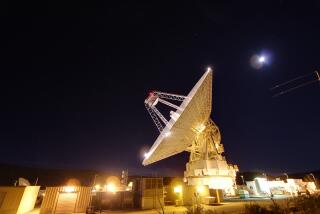Panel Urges a U.S. ‘Catch-Up’ Effort on Superconductivity
- Share via
NEW YORK — The United States is likely to fall behind Japan in the commercial exploitation of superconductivity unless it puts more money and better organization into long-range development, an advisory panel said Tuesday.
The report to President Reagan said the U.S. scientific establishment is not organized properly for development work in fields such as superconductivity, where important profit-making uses are at least a decade away.
It urged the creation of four to six superconductivity consortiums scattered around the country that would unite university, government and industry laboratories that are working on superconductivity.
The consortiums would cost the federal government about $25 million to $30 million a year, on top of the roughly $90 million the government already spends on superconductivity research, the panel said.
In addition, the panel recommended an increase of “a few million dollars” a year in grants to universities for basic research.
Superconductors can conduct electricity without any loss of energy from resistance when they are kept extremely cold, raising the possibility of more efficient engines and motors, faster computer chips and improved scientific devices such as particle accelerators and magnetic fusion machines.
Newly discovered materials are superconductive with less refrigeration, which makes them cheaper and easier to use.
However, the report said some of the hopes for superconductivity are overblown. For example, magnetically levitated trains still may not be practical in spite of higher-temperature materials, said Ralph Gomory, the chairman of the panel and the chief scientist of International Business Machines Corp.
The proposed consortiums would close the gap between the short-term profit focus of industry laboratories and the long-term scientific focus of university laboratories, Gomory said.
Americans are probably “neck-and-neck” with the Japanese in basic scientific research on superconductivity, Gomory said.
But the report said that in terms of commercial applications, the Japanese effort is “better structured than the U.S. both for systematically developing new materials and for coupling these developments closely to industry.”
Gomory said important commercial applications are so far off that there is plenty of time for Americans to catch up.
“Everybody’s just out of the gate. Ahead or behind doesn’t matter. What matters is who’s better structured to run,” he said.






